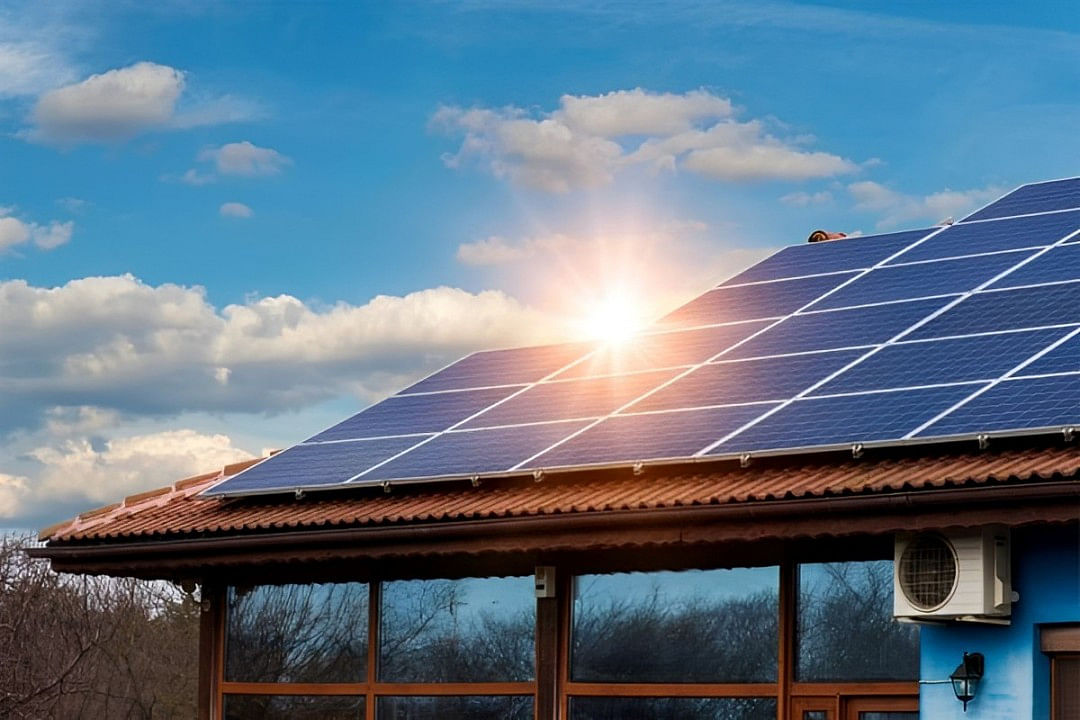
Oct 6th, 2023
Pros and Cons of Solar Energy
When it comes to solar energy pros and cons, we've heard it all: It's for hippies, it's too expensive or it doesn't work. Yet more solar energy systems are being installed in businesses than ever.
Solar energy has often been misunderstood: labeled as a fad, seen as costly, or considered ineffective. However, the increasing installation of solar energy systems in businesses tells a different story.
Advantages of Solar Energy
1) Solar Energy is Proven: Solar power's journey started with scientific trials in the late 19th century. The first photovoltaic (PV) silicon cell, capable of converting sunlight into usable power, was launched in 1954. Fast forward to 1983, global PV production surpassed 21 megawatts. Today, over 47.1 gigawatts of solar capacity has been installed across the country, cementing solar energy as a reliable and expanding source of clean energy.
2) Solar Energy Thrives in Many Climates: The misconception that solar panels falter in cold climates is false. Interestingly, solar panels operate more efficiently in cooler temperatures as excessive heat can decrease output voltage. While more sun hours indeed lead to more electricity generation, current panels are highly efficient and can generate energy even in low-light scenarios. Therefore, someone in Seattle might require a slightly larger solar array than someone in Southern California. To sum up: Solar operates wherever there is daylight.
3) Solar Energy is Increasingly Cost-Effective: Solar system costs have seen a significant dip in recent years. From 2016 to 2017 alone, costs decreased by 9 percent, and they continue to fall. Solar power is now cheaper than conventional energy in many global markets. Numerous financial incentives such as tax rebates, state policies, and various solar financing options, make solar energy a viable choice for more businesses. Also, solar power systems purchased in the United States may be eligible for a 26 percent federal income tax credit and other local incentives.
4) Solar Energy Improves the Entire Electricity Grid: Solar energy overflow can be utilized by the traditional utility grid, reducing its overall strain. Depending on local policies, the solar system owner might receive compensation for this contribution, through mechanisms like feed-in tariffs or net metering policies.
5) Solar Panels are Highly Durable: Solar panels are robust, capable of withstanding severe weather conditions, including hailstorms with hailstones up to an inch in diameter.
6) Solar Panels Boost Property Values: Adding PV panels typically enhances property values. A recent study found that a typical PV system added roughly $15,000 in value to a property.
7) Embracing Solar Power Boosts Public Perception: Solar energy is not only for environmentalists. It's being adopted by a diverse range of users, from small business owners to Fortune 500 and oil companies. It's widely accepted not only for its environmental advantages but also for its financial benefits.
Disadvantages of Solar Energy
1) Solar Panels Only Collect Energy During Daytime: While solar energy is primarily used in real-time, solar commercial buildings depend on utility grids for power during the night or when sunlight is scarce. However, for commercial users, this limitation is mitigated through Commercial solar and storage solutions.
2) The Aesthetics of Solar Panels Aren’t Easily Customized: However, modern solar panels are sleek, compact, and designed to blend seamlessly with the roof. They are crafted to combine elegance with functionality, contributing positively to your business' aesthetics.
3) Business Solar Systems Need to Be Professionally Installed: Though this may seem like a disadvantage, letting professionals handle the installation simplifies the transition to solar energy. They have the expertise to design efficient systems and understand local permitting rules, making the process seamless.
4) Not Every Structure Can Accommodate Solar Panels: Certain factors like shading and roof orientation can make some buildings unsuitable for solar. However, solar professionals are adept at dealing with these issues, and they can propose how a solar system can best fit your property during your free consultation. Even if your roof doesn't get constant sunshine, your system can still generate electricity.
5) Solar Panel Production Impacts Environments: Like any manufactured product, the production of solar panels has an environmental footprint, from the use of chemicals to transportation. However, solar power remains one of the least environmentally damaging forms of energy production.
6) Solar Panels Require Regular Maintenance: While solar panels are generally durable and designed for long-term use, they do require routine maintenance to ensure optimal performance. Regular cleaning, inspections for damage, and necessary repairs are all part of the upkeep. However, many companies offer maintenance plans that help make this process more manageable.
Get the Best Solar Panel Energy Systems
Despite these challenges, the benefits of solar energy far outweigh the drawbacks. As technology advances, solar power will continue to become more efficient, affordable, and accessible. It's a renewable, clean energy source that reduces reliance on fossil fuels and contributes to a more sustainable future. If you’re ready to embrace the solar revolution, reach out to 93Energy today to learn more about how we can customize your energy independence for your unique needs!